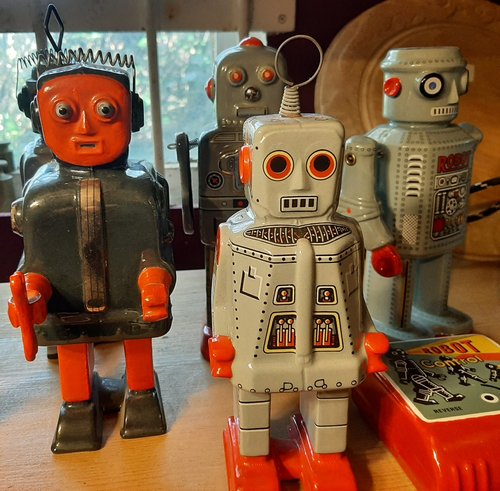Endowing AI With Legal Personality Is Not The Same As Endowing AI With Human Attributes!
Wednesday, 27 March 2024By Bob McDowall

Once a company has been incorporated or registered, it obtains a legal entity, separate from the owners and the people running the company (i.e. directors). The company becomes a legal person, that has rights and obligations- it can own property and assets, sue and be sued in its own right.
In consequence:
- Its property must be insured in the company’s own name.
- It must enter into contracts in its own name.
- Employees will be contracted with the company and not any individual running the company.
- The company can borrow money and give security over its assets (it may borrow money from its own members or directors).
- A company is liable for its own debts; creditors cannot sue members or directors to pay off debts, or seize their personal assets.
- A company may sue and be sued in its own name.
- The company is taxed separately.
- The company has perpetual succession, meaning the company does not cease to exist just because a member dies or ceases to be a member.
Applying such conditions to endowing AI with legal personality seems to be a very logical step, which would follow the statutory legislation and legal precedents of Company Law within the relevant jurisdictions in which AI operates.
Corporations are considered legal subjects or personalities in all modern legal systems. With legal personality they incur civil liability for the damages arising from their conduct and activities, but at the same time recognition of a corporation's legal personality does not require legal recognition of a moral, ethical, or human-like personality - which many of those who oppose endowing AI with legal personality appear to fear.
Just as the ‘personality’ granted to corporations is a legal fiction created by law on functional grounds (principally to separate assets and limit liability), so an AI-agent is also not a natural person.
AI capabilities, despite increasing autonomy, were designed and initiated by humans. Legal personality of AI-agents can be established by provisions of law on functional grounds, such as liability allocation. Such entities would have to be registered much in the same way as corporations. They can also be required to make annual returns which could include descriptions of their activities as well as relevant financial information resulting from their activities during the relevant period of operation

AI will require adequate financial resources to remedy the damages it caused whether by way of capital within the entity, some recognised form of insurance or other form of independent third party financial guarantee. Unlike corporations, which have an activity that can generate revenue after the shareholders' initial contribution, the current technology does not allow AI-agents to achieve capital on their own, though the time is approaching when AI will generate revenues by sale of licenses or similar access rights to deploy its capabilities. The research and development, production and delivery effort through deployment of AI-agent, such as the product designers, software developers, manufacturers, and even its owners and users endow AI with IP Value as well as capital value. It is highly likely that whether through human generated advancement or self-generation additional AI functionality will be created to successful revenue generating AI services or products.
One question that might be posed is “as Artificial Intelligence (AI) agents gain increasing autonomy, their actions are proportionally more exposed to creating damages, which raises a question of liability: who should be responsible for the damages caused by AI?”
Incorporation through legal personality would place a cap on liability. However, following the application of statutory and legal precedent to companies, claims can be pursued against natural or legal persons who are or were research and development, designer, manufacturer, owner or users of the AI, by seeking to pierce or lift the corporate veil.
There is always a natural person behind a corporation. The rights and obligations of the corporation belong to the natural person or those who represent the institution, which is the stakeholder in the AI. The actions of an AI-agent with legal personality, on the contrary, cannot always be traced back to the actions of a natural person. For that reason, an AI-agent would have to be considered as an independent actor, not a mere legal fiction.
Some contend from a technical perspective, that current state of the technology does not make incorporation an advantageous solution, though this contention is eroding as the velocity of change and the apparent commercial demand for its functionality is growing exponentially.
Since an AI-agent is currently unable to acquire assets, someone (or a collective) would have to take out insurance on it or provide it with the means with which damages could be compensated. The liability burden would still be on human persons, even if the actions of the AI-agent are not traceable back to human acts.

Where such assets did not suffice to fully compensate the victims, they would have a strong incentive to seek compensation from the person benefiting from the operation of the system instead. On the other hand, if the AI's assets were sufficient to pay the same level of compensation as under existing liability and insurance regimes, there would be no contest: giving AI legal personality would be a mere formality, not really change the situation.
AI technologists are probably sceptical at this stage of development of the value of endowing AI with legal personality through what is effectively, incorporation. Yet, endowing AI with legal personality using the model and precedents of Corporate Law would provide not just a risk management frame work but a continuous accessible register and record of AI. Why not make it mandatory for all AI which is released for access and distribution? That would be a far more pragmatic than creation of a body of rules and standards, which have yet to be tested and applied to a dynamic and rapidly evolving technology.
Robert McDowall